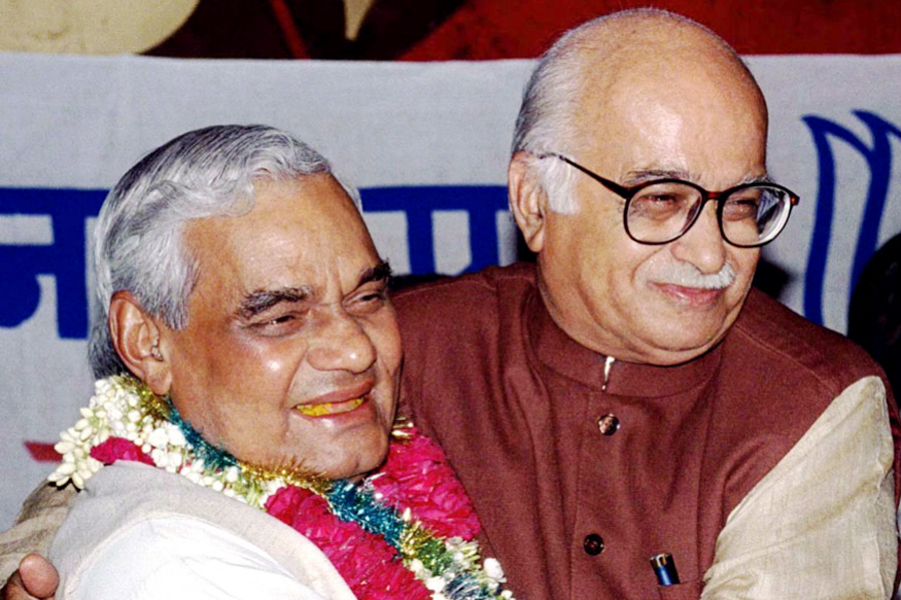It was an irony of fate that a communicator par excellence as Atal Bihari Vajpayee had to spend almost the last decade of his life in virtual silence. If irony has a macabre element, this was it. Fortunately for Atalji, as he was popularly known, history and succeeding generations would remember him for his myriad achievements. And for his eloquence. It was often said that the Goddess Saraswati had stationed herself on his tongue because what he spoke was genuine wisdom and not just fine words.


The conventional opinion about him is that he was a conciliator, which he was, but that’s not the full picture. On key issues, once he had come to a conclusion, there was no going back. His infinite capacity was to listen, try and understand different points of view and try and arrive at a consensus, not at the lowest common denominator. This meant that even junior officers in the course of official briefing could speak up. Because he used to be so absorbed in listening, he gave the impression that he had wandered off. But ever so often, he would ask for a clarification, linking something said to an earlier statement. That meant that no loose statements could be made.
For me, it was doubly difficult as I had to also pay close attention as he would sometime wonder why X had said Y! The mind, ever alert, was sifting information, analysing it and coming to a conclusion. It was normally not instantaneous, but once a decision was made, there was no going back. I remember after the Kargil war he told Yashwant Sinha, the then Finance Minister, to go ahead with taking tough decisions, if required, to pay for the war. He was clear that people would understand, if a case was made out.
He was generous and far sighted. When Mulayam Singh as Defence Minister announced the successful conclusion of the Sukhoi deal, Atalji broke parliamentary tradition and praised the government, surprising everyone.
The empathy factor
I would attribute part of his success as a statesman to the empathy factor. Once, when advised to put greater pressure on Nawaz Sharif, his reply was classic — put yourself in Nawaz Sharif’s shoes. There was silence and the issue was not raised again.
To give a further example of his capacity for empathy, once there was a stormy discussion in Parliament over Deve Gowda’s decision to hike the price of urea or some other fertiliser. Atalji’s reaction was classic. Though he himself had spoken against the hike, he told me in private that Deve Gowda would not roll back the hike despite the near universal demand. He recognised Deve Gouda’s obstinacy, but more than that revealed his astute understanding that the latter was asserting his leadership over his coalition partners.
Part of his success as a statesman is attributed to the empathy factor. Once, when advised to put greater pressure on Nawaz Sharif, his reply was classic — put yourself in Nawaz Sharif’s shoes.
But he was also very generous and far-sighted. When, during the tenure of the same government, Mulayam Singh as Defence Minister made a statement in the Lok Sabha about the successful conclusion of the Sukhoi deal, he got up, broke parliamentary tradition and praised the government for concluding the deal, which was in the national interest. This praise took not just the members but also the minister by surprise. I remember that a senior BJP parliamentarian expressed surprise, even bewilderment, to me as to why Atalji had to praise Mulayam Singh’s actions! The answer, I guess, was that some things were above party politics.
Economic reformer
After Atalji formed the government in 1998, we had a series of meetings on what should be the priorities of the government on the economy front. India was then facing the adverse effect of the Asian crisis and something concrete had to be done. While we struggled and were thinking of some big announcement that would catch the national imagination, he felt that better roads were the need of the hour.
We were five or six in the room, some with much greater exposure to economics, but he was the one who recognised the importance of roads as the minimum requirement for solid economic development. That led to the launching of the Golden Quadrilateral and the North-South East-West national highway development programme. Later, the Pradhan Mantri Gram Sadak Yojana was added to it so that the rural areas did not get left out of the connectivity network. Today we take decent roads for granted and aspire for world-class access-controlled highways that are now coming up. This was unimaginable prior to 1998. This initiative’s contribution to the Indian growth story cannot be over-estimated. At that meeting he resisted the populist impulse that we, the less-experienced, offered.

Pokhran blast
The attainment of India’s nuclear status was something that he had long dreamed of, and managed to succeed too. I remember clearly the tense waiting for the message to come from Pokhran. Adverse winds delayed the tests for a few hours. But when the call came, the room burst into whoops of joy and tears. These were senior leaders in charge of the country — Atalji, L K Advani, George Fernandes, Jaswant Singh, Pramod Mahajan and Brajesh Mishra. When calm settled, it was decided to call the press. The late Pramod Mahajan scripted it perfectly. A single podium in the middle of the lawns with a national flag next to it. We prepared a short matter-of-fact announcement, Atalji, Pramod Mahajan, a few SPG men and I came out of the house and onto the verandah. The rest of us stayed back, Atalji strode to the podium and very solemnly announced that India had carried out nuclear tests. It was a moment that he had been waiting for, at least since 1957.
The writer was private secretary to Prime Minister A B Vajpayee and is currently Director of the Nehru Memorial Museum and Library.





